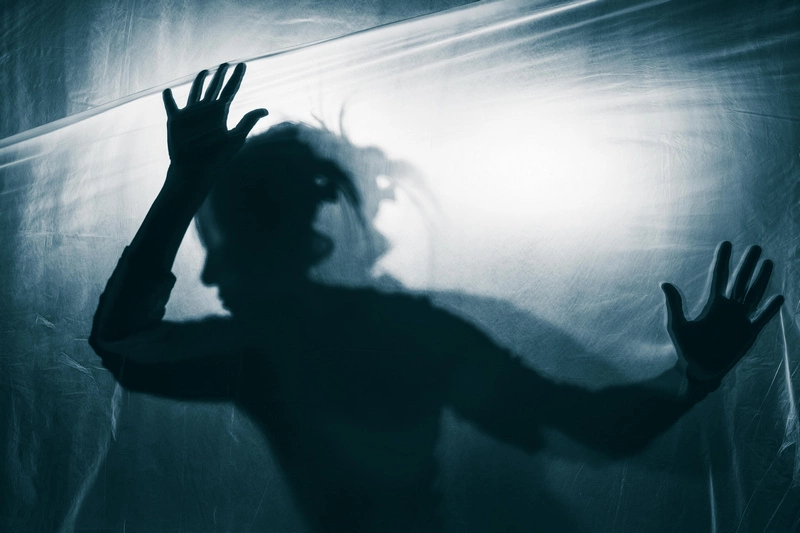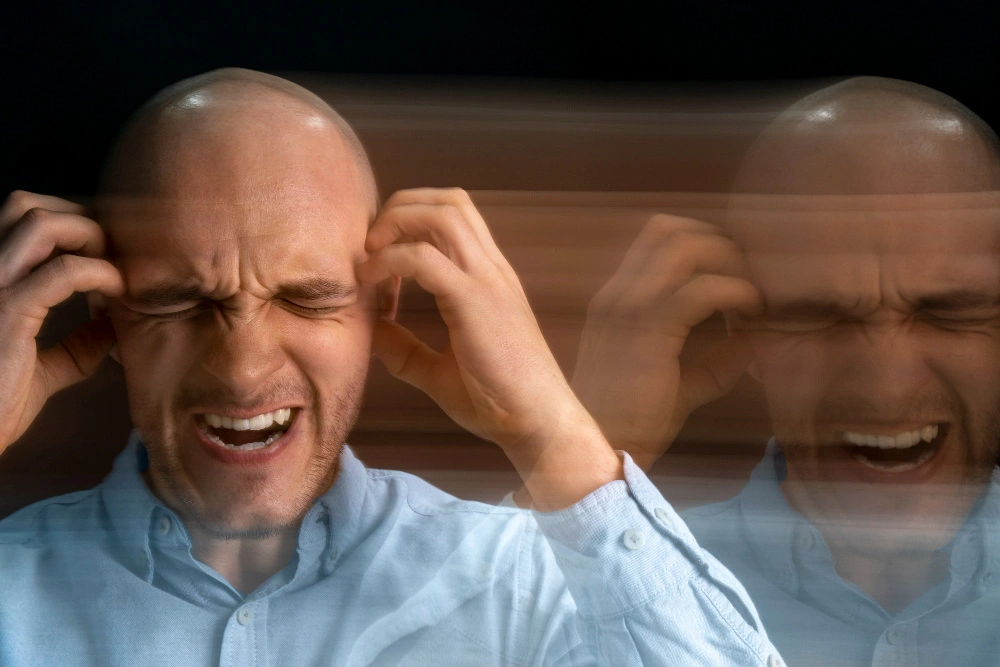Transcranial magnetic stimulation (TMS) is an FDA-approved treatment for depression and has shown promising results in treating other mental health conditions such as anxiety and obsessive-compulsive disorder. However, its effectiveness in treating schizophrenia has been a topic of debate among researchers and clinicians.

What is Schizophrenia?
Schizophrenia is a serious mental illness, the symptoms of which can make it seem as if a person with schizophrenia has lost touch with reality. People with schizophrenia are usually diagnosed in early adulthood, between the ages of 16 and 30, after their first episode of psychosis, a period in which a person’s thoughts and perceptions are disrupted, potentially altering their understanding of reality.
There are three main categories in which schizophrenia symptoms generally fall: psychotic, negative, and cognitive. Psychotic symptoms affect the way a person thinks and interprets the world, while negative symptoms include symptoms that directly influence a person’s daily life, like loss of motivation or interest. Cognitive symptoms, in contrast, include problems with attention, concentration, or memory.
Common schizophrenia symptoms include:
Psychotic Symptoms:
- Hallucinations – Experiencing sensations that aren’t present.
- Delusions – Having strong beliefs that seem untrue or irrational to others.
- Thought Disorder – Unusual or illogical ways of thinking.
- Movement Disorder – Abnormal body movements.
Negative Symptoms:
- Difficulty planning and sticking with routine activities.
- Difficulty feeling pleasure in everyday life.
- Talking dully or showing limited facial expressions.
- Avoiding social interactions or interacting with others in socially awkward ways.
- Having very low energy.
Cognitive Symptoms
- Difficulty making decisions.
- Difficulty using and processing information.
- Difficulty focusing.
Current Treatments for Schizophrenia
There are several treatment options for those with schizophrenia. These treatments focus on helping individuals manage symptoms and improve their everyday functioning.
Antipsychotic medications
Medication is typically a first-line treatment for schizophrenia, as these focus on decreasing the frequency and intensity of psychotic symptoms. These medicines are usually taken every day, though some are administered less often. A person may not always respond to these medications, however, and may require a stronger, but riskier, intervention.
In addition to these possible dangerous outcomes, if first-round prescriptions are ineffective, there are several side effects a person may experience while taking antipsychotic medication. These can include weight gain, dry mouth, restlessness, and drowsiness.

Psychosocial Treatments
Psychosocial treatments are another method by which people with schizophrenia may return to their normal life. These sessions with a therapist help patients manage symptoms while fully experiencing their day-to-day life. Though effective on their own, psychosocial treatments are usually prescribed in addition to antipsychotic medication, lowering the patient’s odds of relapsing symptoms and hospitalizations.
Though psychosocial treatments are more effective in schizophrenia patients taking antipsychotic medication, this assumes that schizophrenia patients are adhering to their prescriptions, which isn’t always true with schizophrenia patients. According to one study over 70% of schizophrenia patients will stop taking their medication within one year. As a result, there is a need for alternative therapies to improve symptoms of schizophrenia.
TMS and Schizophrenia: Current Evidence
TMS is a noninvasive neurostimulation technique that uses magnetic fields to influence the processes of the brain. TMS has already received approval from the FDA for the treatment of major depressive disorder and OCD and it is safe and well-tolerated, with generally minor side effects.
According to one literature review that examined research over the past 15 years examining the effect of TMS on schizophrenia, TMS is both a safe and efficacious means of treating various symptoms of schizophrenia. While less than half of the studies examined did not show any efficacy of TMS on auditory hallucinations, 10 published papers encompassing a total of 257 subjects displayed positive results in treating auditory hallucinations with TMS. These patients reported reductions in hallucinations in general, as well as limits in the severity of hallucinations and significant long-term reduction in hallucinations.
TMS treatment for schizophrenia’s negative and cognitive is also significant overall, perhaps because the negative symptoms of schizophrenia are very similar to those of depression, a mental health condition that has several scientific articles supporting TMS effectiveness. Again, more than half of the articles published in the last 15 years found TMS therapy was effective in improving negative and cognitive symptoms of schizophrenia.
Here are some key benefits of TMS therapy for schizophrenia compared to medication:
- TMS therapy is a non-invasive procedure with fewer side effects than traditional treatments.
- Several studies indicate the potential of TMS therapy to reduce the various symptoms of schizophrenia, including auditory hallucinations.
- Patients may experience long-term symptomatic relief from TMS therapy.
Considerations for TMS Therapy
While the benefits of TMS for schizophrenia are impressive, the science behind these studies is still relatively new, and many delivered treatment to patients who were still taking their usual anti-psychotic medication, meaning the effect of TMS therapy alone on schizophrenia is less well documented. Should TMS therapy prove just as effective as medications, it could make treatment and recovery more possible for the 70% of schizophrenia patients who do not adhere to their medication, while offering fewer side effects than current treatment options.
Individuals should always develop a plan with their healthcare provider to pursue a treatment path considering their symptoms and lifestyle goals, and therapy and antipsychotic medications remain effective options for patients with schizophrenia. Nevertheless, TMS therapy is a promising alternative treatment option at the cutting edge of research.

Effectiveness of TMS for Schizophrenia
Schizophrenia is a serious mental health disorder whose symptoms can vary remarkably from person to person. As such, any person who has experienced a psychotic episode should seek professional advice and support, considering all treatment options, including TMS, to foster their return to a normal life. While antipsychotic medications are effective at reducing some symptoms of TMS and are more successful with psychosocial treatments, there are several adverse side effects associated with these medications, and almost ¾ of patients with schizophrenia stop taking their medication a year after it’s prescribed.
Transcranial magnetic stimulation therapy is a breakthrough treatment promising an alternative to first-line interventions. Many studies have supported the use of TMS for schizophrenia, though some of these have been in conjunction with antipsychotic medications. Regardless, TMS has been shown to be effective at reducing psychotic, negative, and cognitive symptoms of schizophrenia across several hundred patients. Though further study of the effect of TMS on schizophrenia is needed, TMS is a safe and promising possible treatment for patients with schizophrenia.
